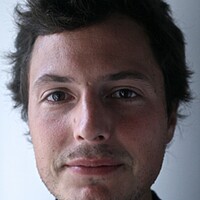Foreign leaders line up to see Argentina’s ‘Dead Cow’
| Fortaleza, Brazil
Russian and Chinese leaders are beating a path to Argentina’s door. But amid talk of strengthening political ties and boosting investment and trade, there’s really only one thing they care about.
“They’re dipping their toes in here to see what’s going on with Vaca Muerta,” says our correspondent in Buenos Aires. "The rest is fluff.”
Argentina’s most prized possession, Vaca Muerta (“Dead Cow”), holds an estimated 16 billion barrels of shale oil and 308 trillion cubic feet of shale gas. That would give Argentina the world’s fourth-largest reserves of shale oil and second-largest of shale gas.
Russian President Vladimir Putin stopped short of making any statements on Vaca Muerta during his visit to Buenos Aires over the weekend, focusing instead on the signing of a new nuclear energy agreement and announcing that Russian atomic energy corporation Rosatom would help construct Argentina’s Atucha III nuclear power plant. However, his counterpart Cristina Fernández de Kirchner took special note that members of Mr. Putin’s delegation would be visiting Vaca Muerta.
“We’re talking about Russia – one of the world’s top producers of gas and oil in the world,” President Kirchner said. “But we Argentines also have our own and it seems like others have noticed.”
China has also noticed. The state-owned China National Offshore Oil Corp. in 2010 acquired a 50 percent stake in Argentine energy company Bridas Corp., a deal widely seen as enabling CNOOC to invest in the Vaca Muerta. President Xi Jinping is visiting Argentina later this week following a summit for the group of BRICS (Brazil, Russia, India, China, and South Africa) and a forum on China-Latin America ties.
Many Argentines are optimistic about the potential for Vaca Muerta to transform their nation’s fortunes almost overnight. Argentine economist and columnist Jorge Castro wrote in local newspaper Clarin over the weekend that Vaca Muerta will become the center of gravity of the global oil and gas business over the next decade. The development will reverse the “irrelevance syndrome” that has plagued Argentina in the last 20 years, he wrote.
Argentina is increasingly desperate to develop Vaca Muerta, but it needs help.... For the rest of the story, continue reading at our new business publication Monitor Global Outlook.







